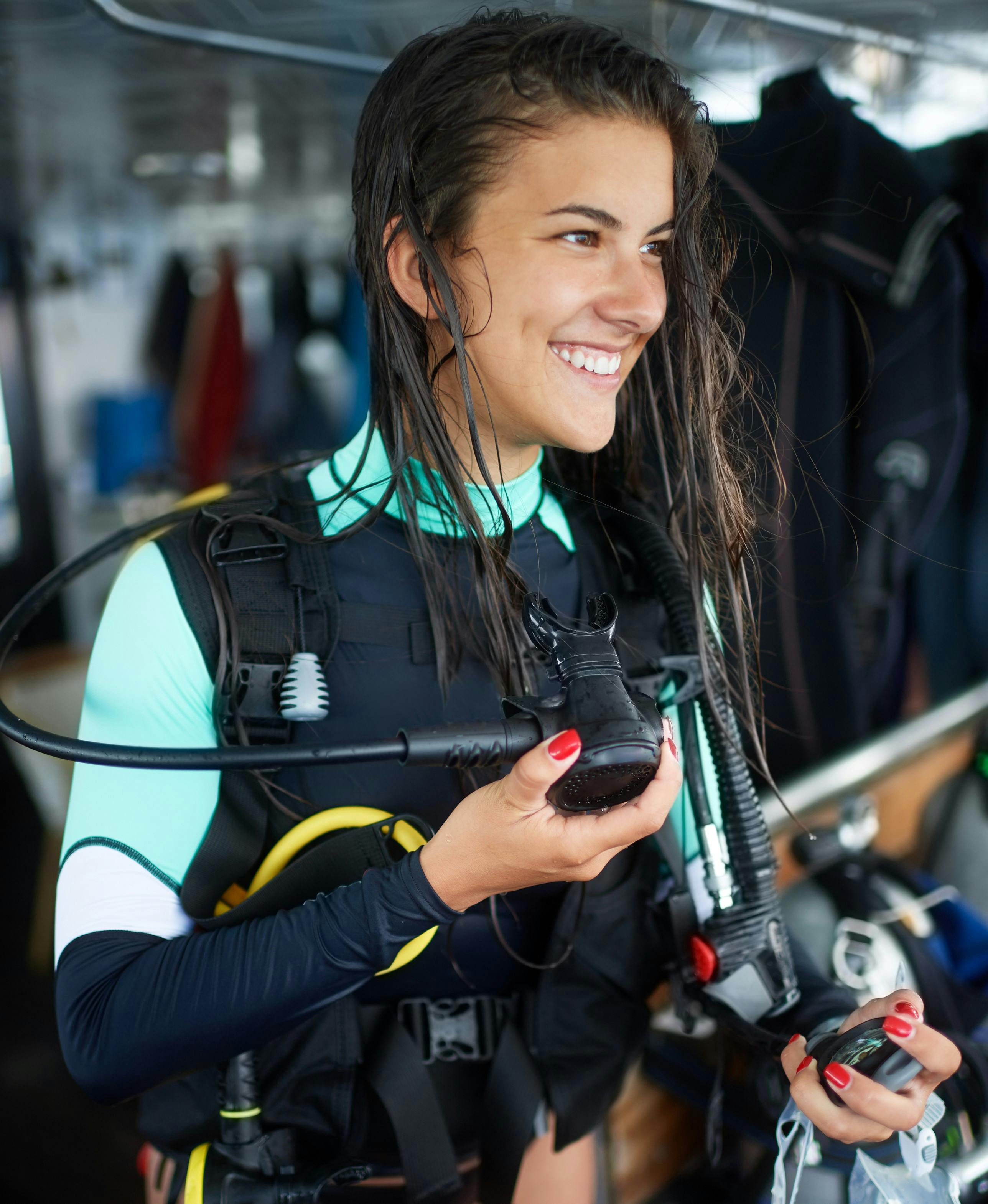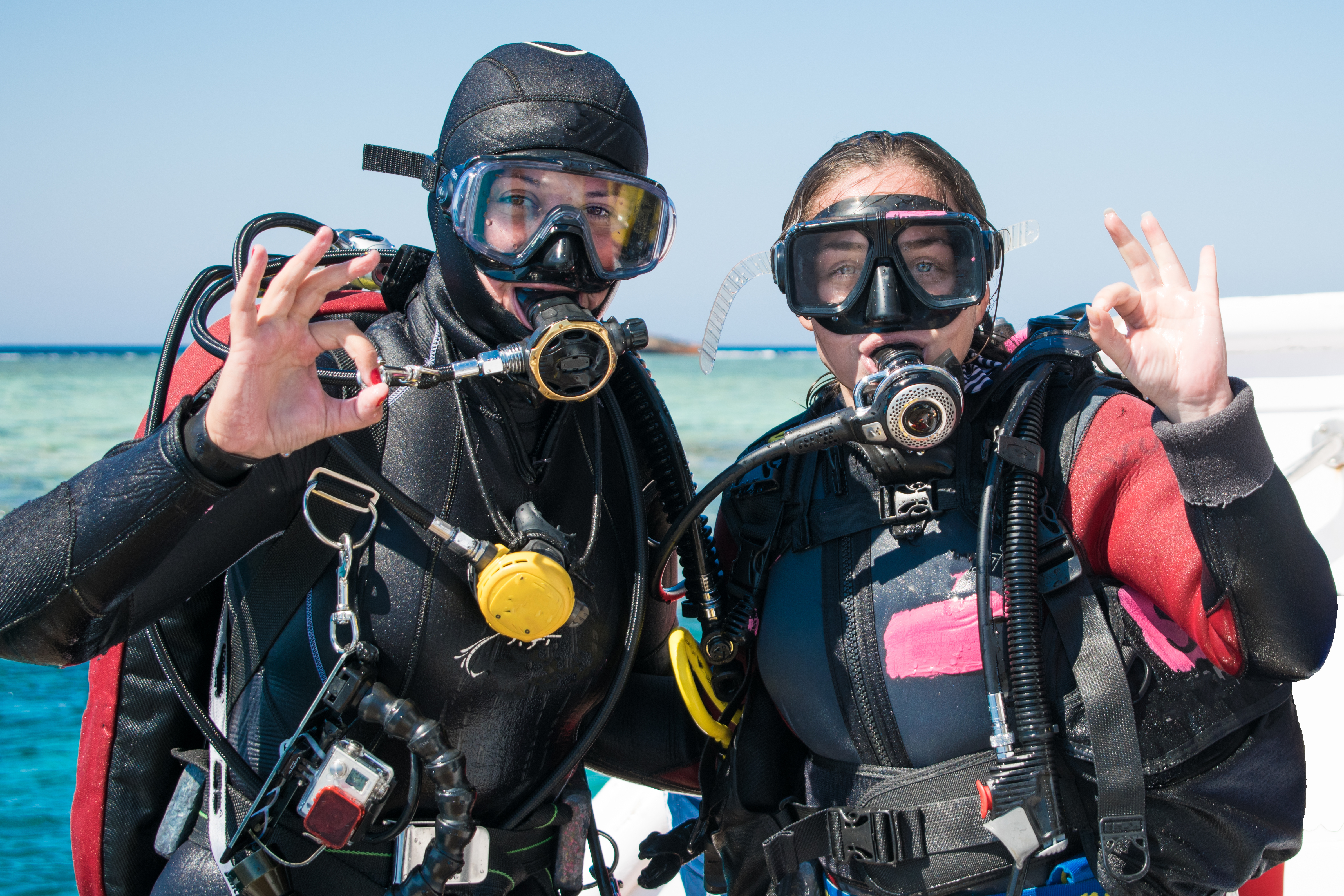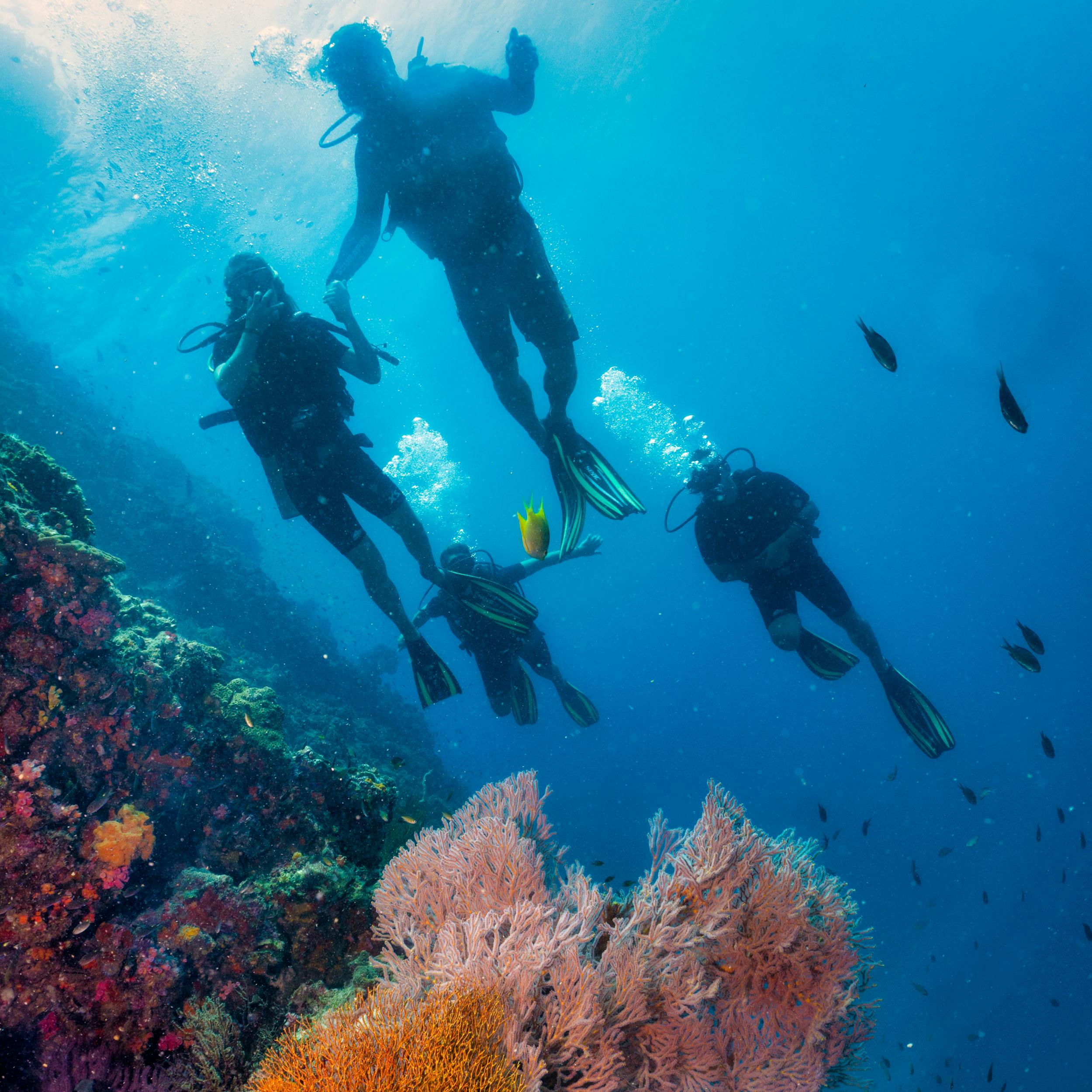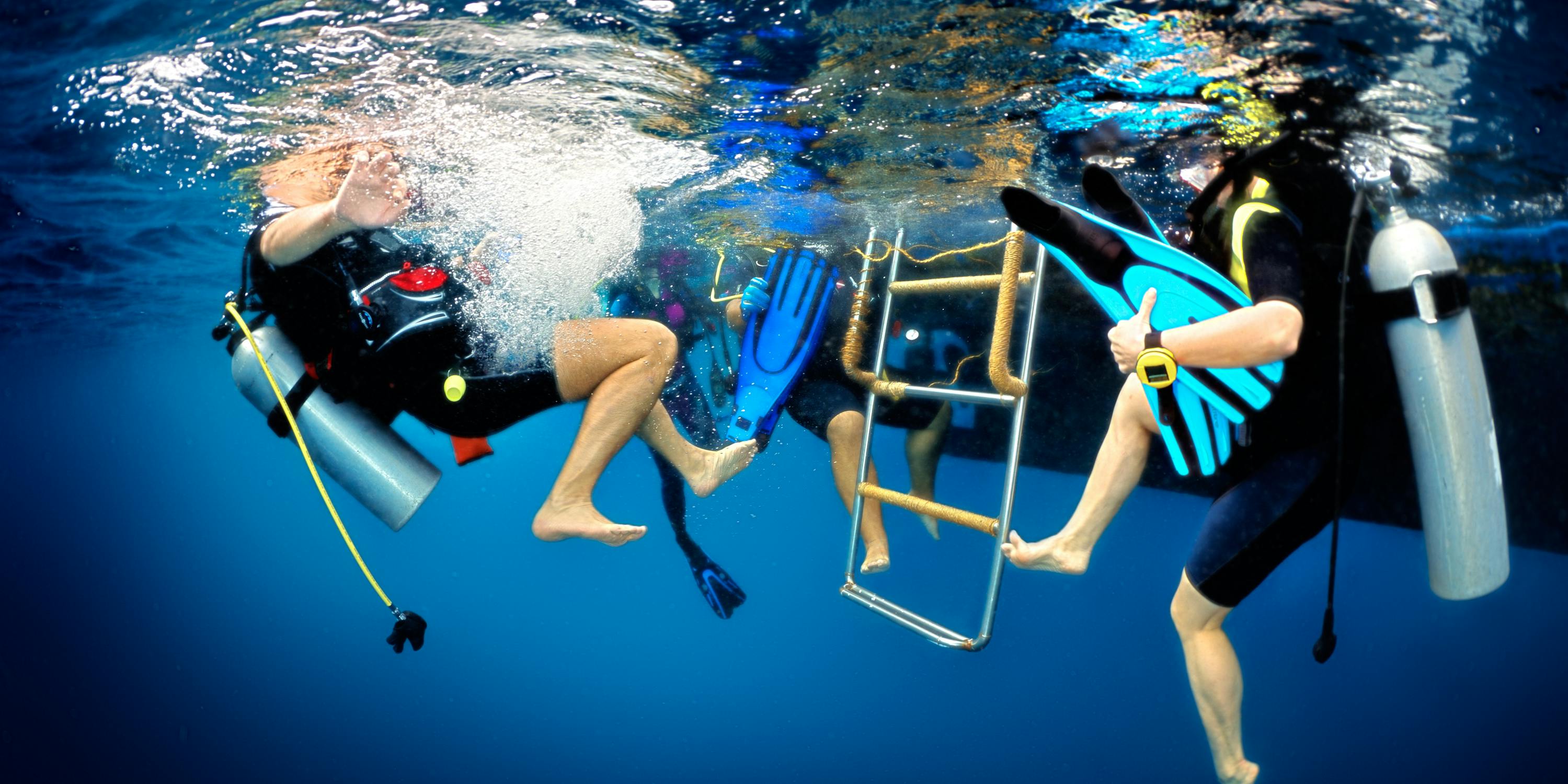Free Shipping on orders of $49+ | Signup for Direct Rewards
Free Shipping on orders of $49+ | Free Store Pickup | Signup for Direct Rewards
Free Shipping on orders of $49+ | Signup for Direct Rewards
Free Shipping on orders of $49+ | Free Store Pickup | Signup for Direct Rewards

Ahoy, fellow diving enthusiasts! Whether you're a wide-eyed newcomer in flippers or a salty veteran who’s been out of the aquatic loop for a bit, here are a few unspoken rules when it comes to diving etiquette that I wish someone had told me when I first started diving.
You know that saying, "The early diver gets the coral reef?" Okay, maybe not exactly like that, but close enough! Make a splash by arriving at the dive charter with time to spare. Avoid being the last one scrambling to load all your equipment onboard.

Not only will you be stuck with the least favorable spot on the boat, but you might receive the stink eye from other divers who showed up on time and had to wait for you. Being early not only puts you on the A-list of awesome divers, but it also ensures you skip the last-minute gear frenzy. Avoid the stress and the unpleasant glares by simply arriving at the dive charter early. If you’re running really late, you might just miss the boat.
Keep in mind that upon your timely arrival, the dive charter might not be ready and there will be others loading on their gear and belongings. After securing your seat by setting your equipment down, a quick way to make a good impression is to ask fellow divers if they would like an extra hand loading their stuff onto the dive boat. Your simple gesture could be the highlight of someone's day! Channel your inner sea superhero and lend a fin to fellow divers – trust us, the karma points are worth it. Pro tip: If you want to be one of the first ones in the water when it is time to dive, get an available spot near the exit ports.
As you begin to unpack and connect your regulator to your tank, be mindful of your belongings. Let's keep the dive boat from turning into a gear maze, shall we? Try to keep your area to a minimum; I'm not saying to keep your stuff packed till it's time to dive, but don't have your mask and snorkel portside, your fans starboard, and your tanks at the stern. To avoid confusion and misplacement of belongings, try to keep your dive den and equipment organized. You won't be the only one setting up and juggling gear.
To ensure safety and comfort for everyone, listen to the captain, dive master, and your dive buddy. Before setting off, the captain will explain what his vessel is equipped with and the dive master will explain the intentions of the dive. All this information is super important to know. If a neighbor’s chitchat threatens the briefing harmony, feel free to gently hush them – your fellow divers will appreciate it. This way nothing needs to be repeated a second time.
Be sure to communicate with your dive buddy. Whether you are a new diver or a veteran, pre-dive checks and conversations are important to ensure safety. Remember, you're not just diving together – you're each other's underwater guardians. Don’t ruin your dive buddy’s experience by having them chase you underwater and vice versa. Maintain a courteous distance – near enough to signal with a glance, but far enough to avoid those accidental underwater bump-ins. Frequent eye contact, listening to your buddy’s bubbles, and dive signals can be your underwater Morse code.

Once the boat has reached its dive destination, no need for a splashy race – there's plenty of ocean to share. Remember that Pro Tip from earlier? If you want to be one of the first divers to hit the water, arrive early and get a spot by the exit port.

Whether you’re the first or last one off the dive boat, makes no difference to the ocean and the wonderful sites to see. Everyone has heavy, protruding, and valuable equipment out; avoid an accident by simply being patient and waiting your turn as everyone makes their way off the boat.
I know it is exciting once you hit the water and you want to “dive, dive, dive” as they say, but make sure you take the time to calculate your buoyancy. If you are new to diving, here are some buoyancy control tips that can help you for your next dive. Taking the time to correct your buoyancy can save you from accidental collisions with coral or other divers. Also, be mindful of your fins to avoid kicking up sand and ruining the visibility for everyone else.
Having proper buoyancy will grant you better control of your movements. Which will help you give divers their space and avoid overcrowding dive sites. Be aware of underwater photographers and animals that have been pointed out. If you were to frantically swim over with improper buoyancy, you would scare away the animal and ruin the photographer’s shot. Fish and divers appreciate the calm, graceful swimmer's approach.
Before you stride into the water, the captain will let you know what time everyone is expected to be back on the boat. Keep that time in mind throughout your dive. As your adventure wraps up, heed the captain's time calls. Try to surface a few minutes before the captain’s time and take into account your decompression stop. Similar to getting off the boat, allow the divers who are already waiting at the ladder to climb aboard first. It may seem like a good idea to take a few extra minutes to look at that cool fish you found, but returning to the boat late creates issues for the dive operation and the other divers on the boat. After all, our underwater camaraderie doesn't end when we break the surface.

Following these underwater gems of diving etiquette is bound to avoid stepping on fins. Be the best diver you can be by being punctual, organized, understanding, and patient. It's about creating ocean harmony for everyone – you, your fellow divers, and all the fishy friends. So suit up, be kind, and as always, happy diving!
Why is punctuality important in diving etiquette?
Being punctual ensures a smooth and stress-free diving experience for everyone. Arriving on time allows you to prepare your gear without rushing and secures you a favorable spot on the dive boat. It also shows respect for fellow divers' time and helps maintain the overall schedule.
How can I help other divers during the dive charter?
Offering assistance to fellow divers while loading gear onto the dive charter creates a friendly atmosphere. A simple act of lending a hand can foster camaraderie and set a positive tone for the dive trip, making everyone feel like they're part of a diving community.
What's the significance of staying organized while setting up gear?
Keeping your dive area tidy minimizes confusion and ensures the safety of your equipment. An organized setup helps prevent mix-ups, ensures everything is easily accessible, and avoids delays when getting ready to dive. It also reflects consideration for shared spaces on the dive boat.
Why is active listening and effective communication crucial in diving etiquette?
Listening attentively to dive briefings from the captain and dive master enhances safety and coordination underwater. Communicating with your dive buddy establishes trust and ensures that both of you are on the same page regarding dive plans and safety procedures. This way, everyone can enjoy a smooth and secure dive experience.
How does maintaining proper buoyancy contribute to diving etiquette
Having good buoyancy control minimizes accidental damage to marine life and avoids disturbing fellow divers. It allows you to move gracefully and responsibly underwater, preventing collisions with coral reefs and marine creatures. This not only helps preserve the underwater environment but also enhances the diving experience for everyone involved.